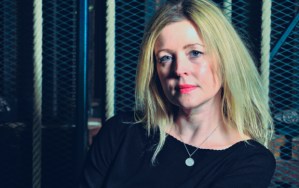Gary Owen: Sherman is the most important new writing theatre in Wales
The writer of ”Iphigenia in Splott” and the upcoming ”Killology” explains why the Sherman Theatre in Wales is so important to playwrights

I can't remember the first time I went to the Sherman. Theatre wasn't something that intruded on my life when I was young, I never wanted to be an actor, I was never involved in student drama at university. And when I rather improbably became a playwright, I did so because someone in London (Vicky Featherstone, then at Paines Plough), decided to produce some monologues I'd written – not through contact with theatre in Wales. But since I've been writing plays, the Sherman has always been a really warm and welcoming place – especially after its amalgamation with Sgript Cymru in the late noughties saw it become a producer of new plays.
But the Sherman seemed to lose its way shortly after merging with Sgript Cymru. The building closed for an 18 month redevelopment, just as it was beginning to build an audience. The merged company never made good on the production levels promised at its launch – arguments still rage over whether that was due to budget cuts, or the management being more comfortable buying in shows than producing them. And from 2010 on, the Sherman was comprehensively eclipsed by the newer, shinier, better funded – and thanks to John McGrath, sexier National Theatre Wales.
Probably the lowest point came when Cardiff council cut all its funding to the Sherman
Probably the lowest point came when Cardiff council cut all its funding to the Sherman, and there was barely a whimper from the arts community in the city. Rachel O'Riordan's appointment really felt like a last throw of the dice for the Sherman. And she has been a success on a level none of us in Wales dared hope for.
Rachel's succeeded because she has – to borrow every rugby commentator's favourite cliche – done the basics really well. She's programmed a mix of classics and contemporary classics on the main stage, building an audience for drama that hasn't existed in Cardiff before. She's been smart in her choices of new work, putting on shows that speak immediately to the concerns of her audience.
She's formed alliances with other theatres in Manchester, Bristol, London and Glasgow to stretch the Sherman's tiny budget further – obvious enough, but something the Sherman has struggled to do in the past. And through a brilliant scheme called Sherman 5, she's brought thousands of people through the doors who have never set foot in the theatre before. Sherman 5 is establishing networks of people in communities across Cardiff who become cheerleaders for the theatre, who organise trips to see shows, who come in and stuff envelopes – it is making the Sherman matter to people in Cardiff in a way it hasn't done for years.
The desire in her to put on plays that will speak to people, that will resonate and matter, is clear and fierce
My play Iphigenia in Splott was initially programmed for eight nights in the Sherman's studio. Based on the sales of other new shows, that was the longest run the company dared risk. Iphigenia sold out its run before previews were over, sold out its extended run, went to Edinburgh, sold out another run at the Sherman, went to the National Theatre for a month, toured the UK for two months, won some awards, got nominated for more, and we are hoping it may still have a further life.
Rachel has that level of ambition for all her work. The desire in her to put on plays that will speak to people, that will resonate and matter, is clear and fierce. And that's why, for playwrights, the Sherman under Rachel O'Riordan is the most important theatre in Wales.














